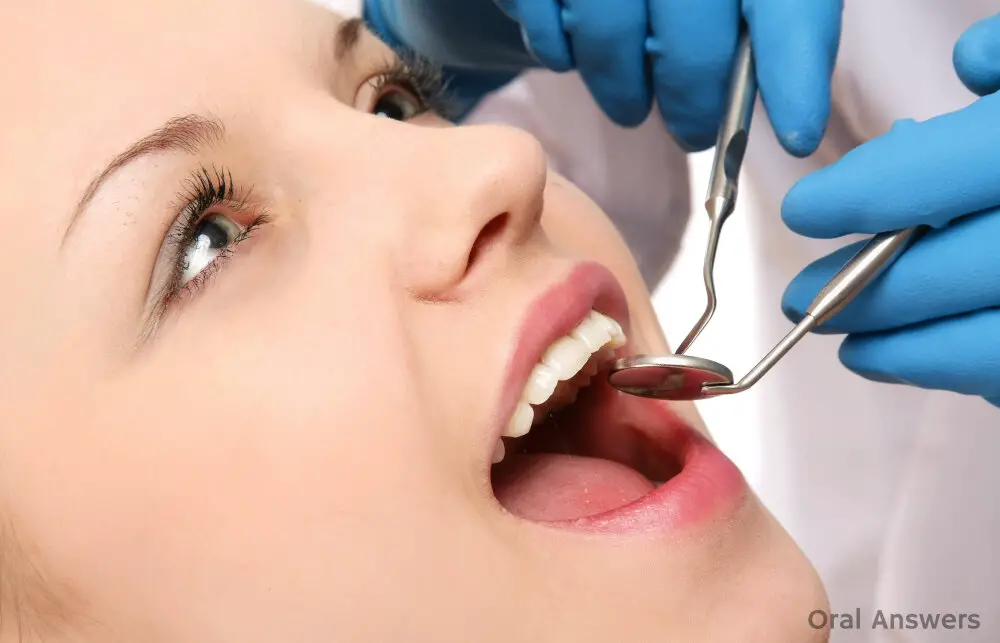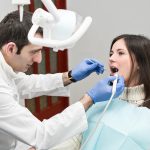At What Age Do Wisdom Teeth Emerge? Exploring the Timing and Common Symptoms

Wisdom teeth, also known as third molars, are the last set of teeth to emerge in the human mouth. These teeth typically appear during young adulthood, anywhere from the ages of 17 to 25. However, the timing of wisdom teeth emergence can vary from person to person, and some individuals may not even develop them at all. Understanding when and how these teeth emerge is crucial for maintaining good dental health and preventing potential complications. The emergence of wisdom teeth can be a painful and uncomfortable experience for many. Common symptoms associated with this process include swollen gums, jaw pain, and difficulty opening the mouth. In some cases, wisdom teeth can become impacted, meaning they do not fully emerge from the gums and can cause further problems such as infection or damage to surrounding teeth. By learning more about the timing and common symptoms of wisdom teeth emergence, individuals can take proactive steps to maintain good oral health and address any potential issues in a timely manner.
Wisdom teeth, also known as third molars, are the last set of teeth to emerge in the human mouth. These teeth typically appear in the late teenage or early adulthood years, and are located at the back of the mouth, behind the second molars. While some people may have wisdom teeth that emerge without issue, others may experience pain, swelling, or infection due to the lack of space in the mouth for these teeth to grow in properly. As a result, many individuals may require the removal of their wisdom teeth to prevent complications and maintain optimal oral health.
Wisdom teeth, also known as third molars, are the last set of teeth to emerge in the mouth, typically between the ages of 17 and 25. These teeth are believed to have been evolutionarily necessary for our ancient ancestors, who had larger jaws and needed the extra molars to help them chew tough, raw foods. However, as our diets have evolved and our jaws have become smaller, many people no longer have enough room in their mouths for wisdom teeth to emerge properly. This can lead to a variety of common symptoms, such as pain, swelling, and infection, which often require removal of the affected teeth.
Understanding the timing and emergence of wisdom teeth is crucial for maintaining good oral health. Knowing when they are likely to appear can help individuals prepare for the discomfort and potential complications that may arise. Delayed eruption or impaction of the wisdom teeth can lead to infection, gum disease, and even damage to adjacent teeth. Therefore, it is important to be aware of the common symptoms associated with the emergence of wisdom teeth, such as pain, swelling, and difficulty opening the mouth. By recognizing these signs and seeking professional dental care, individuals can ensure that their wisdom teeth emerge safely and without causing harm to their oral health.
When do wisdom teeth emerge?

Wisdom teeth, also known as third molars, are the last set of teeth to emerge in the human mouth, usually appearing between the ages of 17 to 25. While some people may never develop wisdom teeth, others may have them emerge without any complications. However, in many cases, wisdom teeth can cause pain, infection, and other dental problems, leading to their removal. The timing of wisdom teeth emergence can vary from person to person. Factors such as genetics, diet, and overall oral health can affect when and how the teeth will develop. In some cases, wisdom teeth may emerge earlier or later than expected, causing discomfort or overcrowding of other teeth. It is important to monitor the development of wisdom teeth and consult with a dentist or oral surgeon if any issues arise. By understanding the timing and common symptoms of wisdom teeth emergence, individuals can take proactive steps to maintain their oral health and prevent any potential complications.
The emergence of wisdom teeth is a common occurrence that happens to many people. These teeth, also known as third molars, typically emerge between the ages of 17 and 25, although there is some variation. Some people may experience the emergence of their wisdom teeth earlier or later than this age range. The emergence of these teeth can be accompanied by a variety of symptoms, including pain, swelling, and difficulty opening the mouth. It is important to monitor the emergence of wisdom teeth and seek dental care if any concerning symptoms arise.
The emergence of wisdom teeth is a complex process that can be influenced by several factors. Genetics plays a crucial role in determining the timing of wisdom teeth eruption. People who inherit genes that lead to early development of teeth tend to have their wisdom teeth emerge earlier than those who inherit genes that result in delayed tooth development. Additionally, the size of the jaw can also affect the timing of wisdom teeth eruption. Individuals with smaller jaws may experience more crowding, which can lead to delayed or impacted wisdom teeth. Conversely, people with larger jaws may have more space, which can result in earlier wisdom teeth eruption. Overall, both genetics and jaw size are important factors to consider when trying to determine the timing of wisdom teeth emergence.
Variations in timing between individuals are common when it comes to the emergence of wisdom teeth. While the average age for the emergence of wisdom teeth is between 17 and 25 years old, some individuals may experience them as early as age 13 or as late as age 30. Factors such as genetics, diet, and dental hygiene can all play a role in when wisdom teeth emerge. Additionally, some people may experience symptoms such as pain, swelling, and inflammation while others may not experience any symptoms at all. It is important to consult with a dental professional to monitor the emergence of wisdom teeth and address any potential issues that may arise.
Common symptoms of wisdom teeth emergence

The emergence of wisdom teeth is a common phenomenon, but it can be accompanied by various symptoms that can be troublesome for some individuals. One of the most common symptoms of wisdom teeth emergence is pain or discomfort in the back of the mouth. The pain can range from mild to severe and can be felt in the jaw, gums, or teeth. This pain can make it difficult to eat, speak or even open the mouth wide. In some cases, the pain can also radiate to the ears or the head, causing headaches or earaches. Another common symptom of wisdom teeth emergence is swelling or inflammation of the gums. The gums around the emerging tooth can become red, tender, and swollen, making it painful to touch or brush the area. This can also lead to bleeding gums, especially while brushing or flossing. Bad breath or an unpleasant taste in the mouth can also be a symptom of wisdom teeth emergence, as the emerging teeth can create pockets where bacteria can accumulate, leading to infection or decay. It is important to keep these areas clean and seek dental care if any symptoms persist or worsen.
Pain and discomfort in the back of the mouth can be a common symptom when wisdom teeth begin to emerge. This discomfort can be caused by the gradual movement of the teeth as they push through the gums, and can also be exacerbated by irritation and inflammation. The sensation can range from a dull ache to sharp pain, and may be accompanied by swelling and redness in the affected area. It’s important to consult with a dentist or oral surgeon if you experience persistent pain, as they can assess the condition of your wisdom teeth and recommend appropriate treatment options.
Swelling and redness of gums is a common symptom experienced by individuals during the emergence of wisdom teeth. This occurs due to the pressure applied by the wisdom teeth on the surrounding gums, causing inflammation and pain. In severe cases, the gums may even bleed and develop infections. It is important to maintain proper oral hygiene during this time to prevent further complications such as abscesses and tooth decay. The discomfort caused by swelling and redness of gums can be alleviated by using over-the-counter pain relievers, applying ice packs, and rinsing the mouth with warm salt water. However, if the symptoms persist or worsen, it is essential to consult a dentist for further evaluation and treatment.
Difficulty opening mouth fully, also known as trismus, is a common symptom experienced by many individuals when their wisdom teeth emerge. This condition can be caused by inflammation and swelling in the jaw, making it difficult for the mouth to open fully. Trismus can be quite painful and uncomfortable, making it challenging to eat, speak, and perform normal daily activities. In severe cases, this condition can also lead to TMJ disorders, causing long-term pain and discomfort. It is essential to seek immediate dental attention if you experience trismus or any other symptoms related to wisdom teeth emergence to prevent further complications.
One of the most common symptoms associated with wisdom teeth emerging is bad breath and an unpleasant taste in the mouth. This occurs because as the wisdom teeth begin to grow, they can push against the other teeth, causing overcrowding and difficulty in cleaning the back of the mouth. Bacteria can then accumulate in the area, leading to halitosis, or bad breath. Additionally, the pressure from the emerging teeth can cause a foul taste in the mouth, which can be difficult to get rid of without proper dental care. If you are experiencing these symptoms and suspect that your wisdom teeth may be emerging, it is important to consult with a dental professional to determine the best course of action for your individual situation.
Treatment options for wisdom teeth emergence

When it comes to the emergence of wisdom teeth, there are a few treatment options available depending on the severity of the case. In cases where the wisdom teeth are coming in straight and without any problems, no treatment may be necessary. However, if the wisdom teeth are causing pain or other dental issues, extraction may be recommended. Wisdom tooth extraction is a common procedure that can be done by a dentist or oral surgeon. In some cases, the wisdom teeth may need to be removed even if they aren’t causing any problems, to prevent potential issues in the future. Another treatment option for wisdom teeth emergence is to monitor the teeth closely and address any issues as they arise. This approach involves regular dental check-ups and x-rays to keep an eye on the wisdom teeth and make sure they are coming in properly. If any issues are detected, such as impaction or infection, a treatment plan can be developed to address them. This may involve antibiotics, pain relief medication, or other dental procedures to correct the problem. Ultimately, the best treatment option will depend on the individual case and the advice of a dental professional.
Monitoring and waiting for teeth to fully emerge is an essential aspect of maintaining dental health. Wisdom teeth, also known as third molars, typically emerge between the ages of 17 and 25. During this time, it is crucial to monitor the emergence of these teeth for any signs of impaction, infection or misalignment. Symptoms of impacted wisdom teeth include pain, swelling, and difficulty opening the mouth. Regular dental check-ups and X-rays can help diagnose and monitor the development of wisdom teeth. In some cases, early removal may be necessary to prevent further complications. However, waiting for teeth to fully emerge before deciding on treatment is often recommended to ensure the best possible outcome for the patient.
When wisdom teeth emerge, pain can be a common symptom. Managing this pain can involve a variety of techniques, such as over-the-counter pain relievers like ibuprofen or acetaminophen. Ice packs can also be used to relieve pain and reduce inflammation. Applying the ice pack for 15-20 minutes at a time, several times a day can provide relief. Additionally, avoiding hard and crunchy foods can help reduce discomfort. If the pain persists or becomes severe, it’s important to consult with a dentist for further evaluation and treatment options.
Extraction of wisdom teeth, also known as third molars, is a common dental procedure performed when they cause problems like overcrowding, infection, or decay. The procedure can be done surgically or non-surgically. Non-surgical extraction involves loosening the tooth with a dental instrument and removing it with forceps, whereas surgical extraction involves making an incision in the gum and removing the tooth in sections. The type of extraction depends on the position and condition of the tooth. Both methods can be performed under local anesthesia, sedation, or general anesthesia. After the extraction, the dentist will provide instructions on how to care for the site and manage pain and swelling. It is important to follow these instructions carefully to ensure proper healing and avoid complications.
When it comes to the treatment options for wisdom teeth, there are both risks and benefits to consider. One option is to have the wisdom teeth removed, which can prevent future problems such as impaction, infection, and decay. However, there are risks associated with the procedure, such as bleeding, swelling, and pain. Another option is to monitor the wisdom teeth and only remove them if there are issues, which can avoid the risks of surgery but may lead to problems down the line. Ultimately, the decision on how to address wisdom teeth should be made in consultation with a dentist or oral surgeon, weighing the potential benefits and risks of each approach.
How to care for wisdom teeth

Wisdom teeth, also known as third molars, typically emerge between the ages of 17 to 25. These teeth can cause discomfort and pain while they’re growing in, but with proper care, you can minimize the symptoms and prevent future problems. One of the most important steps in caring for wisdom teeth is maintaining good oral hygiene. Brushing and flossing regularly can help prevent food particles and bacteria from getting stuck around the wisdom teeth, which can lead to infection and decay. Additionally, using an antiseptic mouthwash can help kill bacteria and reduce inflammation. Another important aspect of caring for wisdom teeth is watching what you eat. After the wisdom teeth emerge, it’s important to stick to soft foods that won’t irritate the gums or damage the newly emerging teeth. Foods like soup, mashed potatoes, and scrambled eggs are good choices, while harder foods like nuts and chips should be avoided. Additionally, it’s important to avoid smoking or using tobacco products, as this can delay the healing process and increase the risk of infection. By taking these steps, you can help ensure that your wisdom teeth emerge as smoothly and painlessly as possible.
Regular dental checkups are essential for maintaining good oral health. These checkups can help detect any dental problems at an early stage and prevent them from becoming more severe. One of the common dental problems that can be detected during a dental checkup is the emergence of wisdom teeth. Wisdom teeth can cause pain, swelling, and infection if they are not removed in time. Regular dental checkups can also help prevent gum disease, tooth decay, and other dental issues. In addition, dentists can provide valuable advice and guidance on how to maintain good oral hygiene and prevent future dental problems. Therefore, it is important to schedule regular dental checkups to ensure optimal oral health.
Daily oral hygiene habits, such as brushing and flossing, are crucial for maintaining good oral health. Brushing twice a day with fluoride toothpaste helps remove plaque and prevent cavities. Flossing, on the other hand, reaches the areas between teeth where a toothbrush cannot reach, removing food particles and plaque buildup. It is recommended to use a soft-bristled toothbrush and replace it every three to four months. Moreover, rinsing with an antiseptic mouthwash can kill bacteria and freshen breath. By practicing these daily oral hygiene habits, we can prevent numerous dental problems, including gum disease, bad breath, and tooth decay, ensuring a healthy and bright smile.
Dietary considerations play a crucial role in preventing complications during the emergence of wisdom teeth. It is recommended to avoid hard and sticky foods during this period as they can damage the tender gum tissues and create discomfort. Instead, soft foods like soups, mashed potatoes, and smoothies can be consumed to ensure proper nutrition without causing any harm to the developing teeth. Additionally, it is advised to stay away from acidic and spicy foods, which can aggravate the gum tissues and cause inflammation. Maintaining a balanced and healthy diet while being mindful of the dietary restrictions during the emergence of wisdom teeth can help alleviate symptoms and promote a smooth recovery.
As wisdom teeth begin to emerge, patients may experience a range of symptoms that can indicate potential problems, including infection or decay. One of the most common signs of trouble is pain or discomfort in the jaw or gums, which may be accompanied by swelling or redness. Patients may also notice a bad taste or odor in their mouth or have difficulty opening their mouth fully. In some cases, wisdom teeth may cause crowding or shifting of other teeth, leading to bite problems or difficulty chewing. If any of these symptoms arise, it’s important to consult with a dental professional to determine the best course of treatment and prevent further complications.
In summary, wisdom teeth typically emerge between the ages of 17 and 25, but can appear earlier or later. Symptoms of emerging wisdom teeth include pain, discomfort, swelling, and difficulty chewing or opening the mouth. It is important to regularly visit a dentist to monitor the development of wisdom teeth and address any potential issues. In some cases, wisdom teeth may need to be extracted to prevent further complications such as infections, gum disease, or damage to surrounding teeth. Overall, understanding the timing and symptoms of wisdom teeth emergence can help individuals make informed decisions about their dental health.
Understanding the emergence of wisdom teeth is crucial for maintaining optimal oral health. These third molars typically appear in the late teenage years or early adulthood, and their emergence can lead to a variety of uncomfortable symptoms such as pain, swelling, and infection. By understanding when these teeth are likely to emerge and the common symptoms associated with their emergence, individuals can take proactive steps to manage any discomfort and prevent potential complications. Regular dental check-ups and consultations with a dental professional can also help individuals to monitor the progression of their wisdom teeth and determine if any further action is necessary, such as extraction. Overall, being knowledgeable about the emergence of wisdom teeth can help individuals to maintain their oral health and prevent potential issues from arising.
It’s crucial to seek professional advice and care as soon as you notice any symptoms related to wisdom teeth emergence. Some common symptoms include pain, swelling, and infection, which can be indicative of underlying dental issues. Ignoring these symptoms can lead to complications, and in severe cases, require surgical intervention. Professional dental care can help diagnose the problem early and suggest the best course of action. It’s always better to be safe than sorry, and seeking professional help can save you from a lot of pain and discomfort in the long run. So, don’t hesitate to reach out to your dentist if you suspect any issues with your wisdom teeth.
Conclusion

In conclusion, understanding the emergence of wisdom teeth is essential for maintaining good oral health. While there is no exact age for when these teeth will appear, it is typically between the ages of 17 and 25. It is also important to be aware of the common symptoms associated with wisdom teeth eruption, such as pain, swelling, and difficulty opening the mouth. In some cases, the wisdom teeth may need to be extracted to prevent further complications. Therefore, it is recommended to regularly visit a dentist for checkups and monitoring of the development of wisdom teeth. By staying informed and proactive, individuals can ensure their oral health remains in optimal condition.






